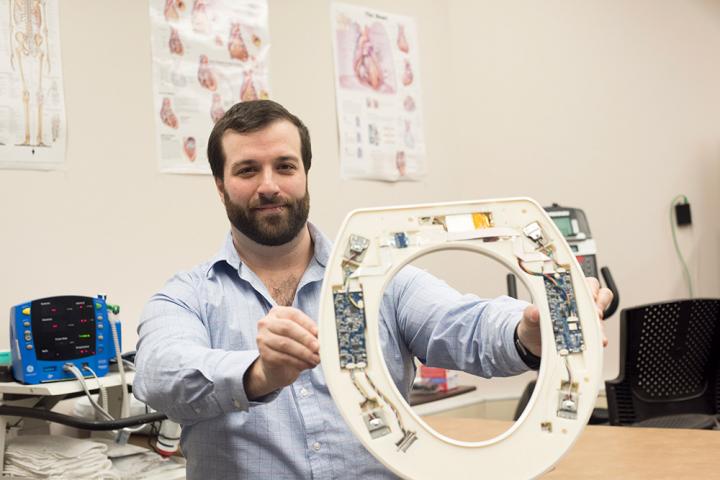
Toilet Seat-Based Monitoring
A team of researchers at the Rochester Institute of Technology invented a “toilet seat-based cardiovascular monitoring system” that could help hospitals monitor patients for risk of congestive heart failure — a toilet, in other words, that detects whether your heart is about to give out.
“This system will be uniquely positioned to capture trend data in the home that has been previously unattainable,” reads the paper, published in the journal JMIR Mhealth Uhealth.

Integrated into the seat is a device that measures heart rate, blood pressure, and blood oxygenation levels. Algorithms will take in all that data and notify health practitioners if the patient’s condition deteriorates.
A trial involving 18 subjects over an eight week period seems to indicate that it’s pretty accurate: “Clinical grade accuracy was achieved for all of the seat measurements when compared to their respective gold standards.”
The goal is to lower the rate of readmission of patients with congestive heart failure. The team plans to bring the device to the Food and Drug Administration for clearance.
The Widowmaker
According to the Center for Disease Control and Prevention, about 630,000 Americans die from heart disease each year, accounting for one in every four deaths. Top risk factors include diabetes, obesity, poor diet, and a lack of physical activity.
“Typically, within 30 days of hospital discharge, 25 percent of patients with congestive heart failure are readmitted,” said Nicholas Conn, a postdoctoral fellow at RIT and researcher on the toilet seat project. “After 90 days of hospital discharge, 45 percent of patients are readmitted. And the Centers for Medicare and Medicaid Services is penalizing hospitals for readmitting patients for heart failure.”
Toilet Seat Treatment
The researchers argue providing patients who have experienced heart failures with the toilet seat could significantly save hospital systems hundreds of thousands of dollars by lowering the readmission rate after a subsequent incident. After all, congestive heart failure is an issue with how your heart pumps blood, not a death sentence.
While there’s often no cure, heart failure can be treated with a number of strategies, according to the American Heart Association, ranging from lifestyle changes and medications to ongoing care. And a toilet seat-based monitoring system could make those steps a whole lot easier, for patients and practitioners alike.
READ MORE: Toilet seat that detects congestive heart failure getting ready to begin commercialization [Rochester Institute of Technology]
More on heart disease: Susceptible to Heart Disease? Gene Editing Could Change That